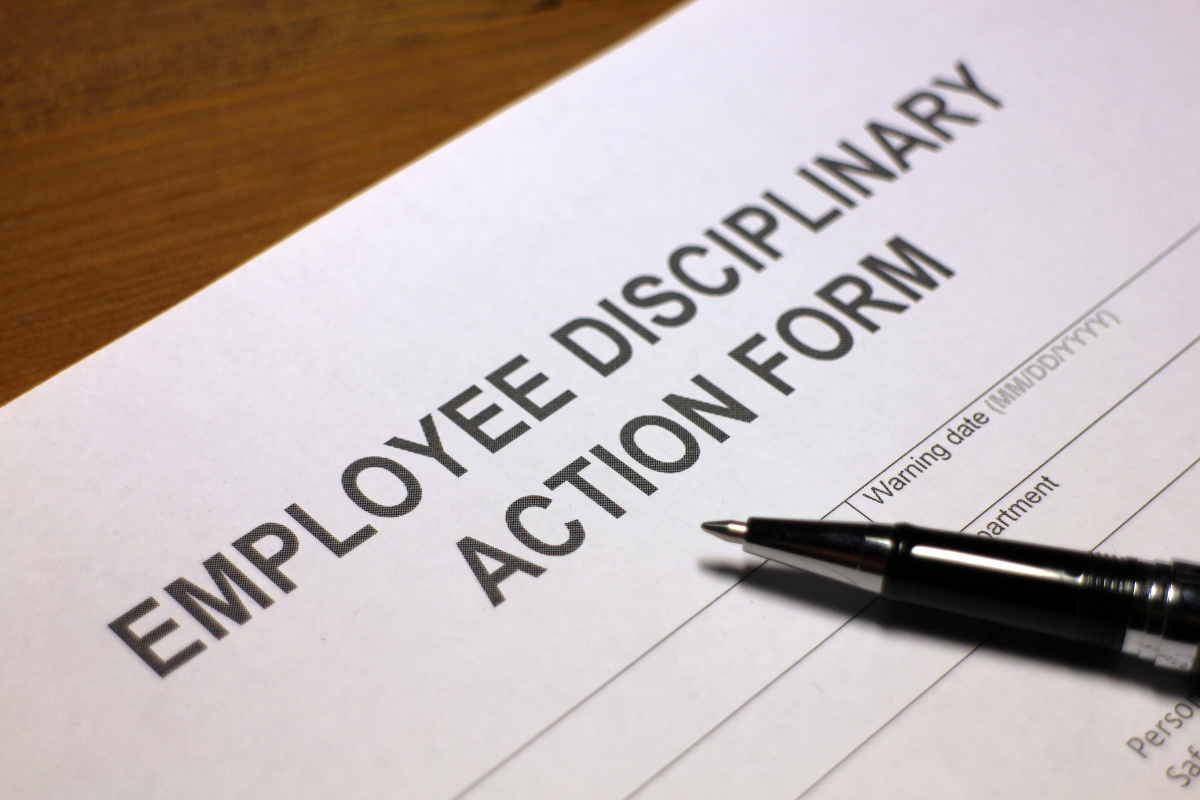Disciplinary processes are often used in businesses when an employee does something wrong, but there are some misconceptions about them that can lead to employers making costly mistakes. In this week’s blog, we’ll look at some of the myths that catch employers out that may result in an employee being treated, or even dismissed, unfairly.
Myth – We don’t have to allow a trade union official to be a companion if we don’t recognise that union
Fact – ACAS guidelines state that an employee has a right to be accompanied by a work colleague, a workplace trade union representative who’s certified or trained in acting as a companion, or an official employed by a trade union. The employee does not have to be a member of a trade union to have representation and does not have to use an official from a trade union which the employer recognises.
Myth – We can’t hold the disciplinary meeting because the employee is off sick
Fact – the important point here is to act reasonably. If an employee has called in sick, they should be given other opportunities to attend a meeting. If however, they will not be able to attend on a long term basis or cancel the meeting repeatedly due to illness, the employer may suggest that the employee gives evidence through an agreed representative, over the phone or in writing. An Occupational Health assessment may also be beneficial.
If the employee persistently does not attend a meeting, they can be informed that, as per ACAS guidelines “where an employee continues to be unavailable to attend a meeting the employer may conclude that a decision will need to be made on the evidence available”. In these situations, an employer would need to keep full records of the various attempts to hold the meeting to give proof of reasonable behaviour.
Myth – They didn’t turn up, so we can go ahead without them there
Fact – As mentioned in the paragraph above, it’s important to behave reasonably. If the employee does not attend the hearing, but the employer goes ahead with a meeting and dismisses in the employee’s absence, the dismissal could be rendered as unfair. In these situations, it is advisable to reorganise the meeting and give the employee another opportunity to attend. If the employee repeatedly does not attend the meeting, an employer can make a decision without their attendance, providing that they warn the employee they will do so. As part of their decision-making process on how to proceed, ACAS mentions that an employer may want to look at:
- any internal rules regarding non-attendance of disciplinary meetings;
- how serious the disciplinary issue is;
- the individual’s disciplinary record, length of service, work record etc.;
- how they have dealt with similar cases in the past, and;
- medical opinions on whether the employee is fit to attend the meeting.
Myth – If an employee does something really bad, we can dismiss them immediately
Fact – Employers should follow the ACAS guidelines even in situations where the outcome may seem, at first, to be obvious. This gives the employee the chance to explain their case and inform the employer if there are any mitigating circumstances or additional evidence which need to be considered before a decision is made. If an employer does not follow the ACAS guidelines, a dismissal may be deemed to be unfair.
Myth – We have to allow employees to record disciplinary meetings
Fact – An employee does not have the right to record the meeting unless your disciplinary process states they can. However, if an employee does record a meeting covertly, and then submits that evidence to a tribunal, the tribunal may allow the evidence to be admitted.
Myth – An employee can be accompanied by whomever they choose
Fact – The ACAS guidelines state that an employee can be accompanied by a work colleague, a workplace trade union representative who’s certified or trained in acting as a companion, or an official employed by a trade union. However, the employer does need to act reasonably and may wish to expand the options for an employee who is young or potentially vulnerable. If the employee has a disability which is covered under the Equality Act, they have a legal right to reasonable adjustments which may include an alternative companion. There may be situations where allowing an interpreter to accompany the employee would also need to be considered. Acting reasonably in these situations is important if an employer is called upon to defend their actions in a tribunal situation.
Myth – Disciplinary hearings cannot be held over video conferencing, they have to be in person
There is nothing in the guidelines which specifies that hearings need to be held in person. If you do need to, or choose to, hold a hearing via video conferencing, you should follow the same processes as you would in a face-to-face meeting. The employee will still have the right to be accompanied and thought should be given to how the two individuals might confer. This may be done via a breakout room. You will also need to ensure that the platform used is secure and that any recording of the meeting is agreed at the start of the meeting and that the recording is kept private.
Disciplinary processes need to be managed carefully to ensure they follow ACAS guidelines. This will reduce the likelihood of successful tribunal claims, costly payouts and reputational damage. If you would benefit from help with a potential disciplinary process, please speak to View HR to see how we can help.


